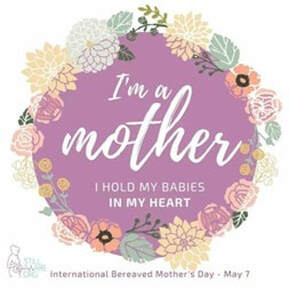 Blog Post By: CAROLE BRULÉ International Bereaved Mother’s Day is celebrated on the first Sunday in May. This very special day was created in 2010 by mom Carly Marie Dudley a few years after her beloved son Christian was born still. International Bereaved Mother’s Day honours and celebrates mothers who carry some, or perhaps all, of their children in their hearts rather than their arms. Carly wanted to help other grieving mothers by letting them know that they were not alone. She dedicated International Bereaved Mother’s Day to women who felt forgotten and isolated in their grief on Mother’s Day (traditionally held on the second Sunday of May each year). The traditional Mother’s Day is often a dreaded and emotionally exhausting occasion for so many moms around the world. On International Bereaved Mother’s Day, moms who have lost their child/children are able to come together and support one another by sharing their memories, their pain, and their stories. It is a chance to remind each other that they are not alone in their grief. “Just because your child died does not mean that you are not a mother anymore. You are your child’s mother forever, and people need to start recognizing this fact.” – Still Standing Magazine So often, those who know a bereaved parent (even family and close friends) feel helpless in terms of what they can say or do to provide support and so they instead say nothing. This lack of acknowledgement can make a bereaved parent feel even more isolated and alone in their grief. Yes, it can be difficult to know how to acknowledge a bereaved mom, especially in May when mothers are traditionally celebrated, however, the loving presence of family and friends and a willingness to simply be there and remember a little one gone too soon is often enough. How to gently support a bereaved mother … For those who wish to truly support a bereaved mother, your ongoing presence and willingness to be there and remember is so important. To authentically be there with her in her grief without trying to ‘fix’ the pain she is feeling is enough (because you simply can’t resolve the pain or make it better and you truly don’t need to). On International Bereaved Mother’s Day and Mother’s Day, let bereaved mothers know that you remember with them…
Celebrating Mother’s Day as a Bereaved Mom
There is NO guilt or shame to be had here. Because you’re still a mom even if you do none of these things. You are still loved. You are still celebrated. Your baby is still remembered. You are still and will always be … a mom.
0 Comments
In our July 2022 newsletter, we looked at the ways in which the Covid-19 pandemic resulted in significant disruption to overall healthcare including maternity, neonatal, and bereavement care services. Maternity care changed abruptly with the arrival of the Covid-19 lockdown leaving many perinatal loss families isolated, alone and cut off from their families, friends, and usual support systems. The loss of a baby through miscarriage, stillbirth or neonatal death is one of the most traumatic life events anyone can imagine. Following the loss of a pregnancy, women may experience a rollercoaster of emotions including (but not limited to): shock, denial, anguish, guilt, feelings of shame and inadequacy and a loss of hope. Feeling isolated and unable to access much-needed support after such a loss, may lead to complicated grief. VeryWell Health defines complicated grief as follows: ‘Normal’ grief describes the typical feelings that people have in the first weeks or months after a loss. This type of grief will get better with time as people learn to cope with the loss. Complicated grief describes atypical feelings and responses that can be extremely intense and persistent. A person with complicated grief may need more support to help them understand what they are feeling and how to move through the grieving process. Please click here for reference A 2018 study notes that: up to 30 percent of pregnancy losses are followed by significant emotional reactions. And one in 10 women exhibit signs of a diagnosable disorder such as anxiety, depression or post-traumatic stress disorder following a reproductive loss. Please click here for reference It is so important to remember that grief of any kind is a unique, fluid, dynamic, and complicated process that does not proceed in a linear or orderly way. We all vary enormously in the ways that we experience grief in terms of its duration, intensity, and the ways in which we cope. If you or someone you love is grieving the loss of a pregnancy or an infant, please remember, you are not alone. We here at the Ottawa Butterfly Run see you, hear you and stand with you. Resources to support you: Ottawa’s 24-hour Distress Centre
Distress: 613-238-3311 Crisis: 613-722-6914 or 1-866-996-0991 /TEXT 343-306-5550 (chat and text 10am-11pm) Pregnancy and Infant Loss Network “Psychology Works” Fact Sheet: Grief in Adults The increased use and uptake of the many social media platforms that we now have access to has provided a much-needed way for bereaved parents to connect, share their loss and grief, and support one another. In scrolling through apps like Facebook or Instagram, however, it’s clear that women are the ones who are doing most of the talking. So, what about dads and birthing partners? Perinatal loss profoundly affects them too, so how can we best provide support and hold space for their experiences and their grief? Perinatal loss affects the whole family Historically perinatal loss has been thought of primarily as a “women’s issue”. Although it does impact women in many significant ways that don’t apply to dads or birthing partners, they suffer a huge disservice when it is categorized in this way. Leaving fathers out of the conversation perpetuates the stigma around pregnancy loss and reinforces the antiquated notion that “strong men don’t cry.” Perinatal loss affects the whole family and men, just as women, need to be given permission to both recognize their grief and process their loss. How can we best support dads and birthing partners throughout perinatal loss? Recognize their grief Many on-line resources state that men and women grieve in different ways – would it not be more accurate to say that every person grieves differently? We all know that grief is not a linear process and that it can be experienced and expressed in so many ways – sorrow, anger, guilt, confusion, depression, anxiety just to name a few. Some people need to share their pain openly while others prefer to process their emotions through quiet reflection or journaling. Providing genuine support to someone who is grieving is achieved by honouring their grief experience - by not trying to ‘fix it’ or shape it to fit our own personal, cultural, or spiritual expectations of what it should look like. For example, for a grieving dad, don’t simply assume that he doesn’t want to talk about his loss. Saying something like “I’m thinking of you today and I’m always here if you need to talk” is a simple but compassionate way of reaching out and supporting a grieving father. Support them emotionally, practically, and spiritually Ask him how he’s doing. Encourage him to take the time he needs to grieve. Do something to let him know you’re thinking of him - something as simple as an invitation to go out and grab a coffee. Remember him on key days when he may be struggling such as Father’s Day. Adriel Booker’s website recommends: In addition to the expectation that he’s not to miss work, he’s likely supporting his wife emotionally, assisting her practically as her body recovers, caring for other children, maintaining the home, and so on. He might seem to be holding it all together as he strives to maintain the status quo for the sake of his family, but he’s grieving too. Ask yourself if there are small ways you can ease Dad’s load, validate his pain, or demonstrate your support to him in a personal way. Include his name in cards you write and texts you send. Encourage him. Affirm him. Make room for his grief—welcome it, in fact. Link to reference Reaffirm that there’s no “right or wrong” way to grieve – grief is messy March of Dimes notes: In general, here’s how your partner may show his grief:
Showing grief doesn’t have any rules or instructions. There’s no right or wrong way for you or your partner to grieve or share your feelings. It’s OK to show your pain and grief in different ways. Be patient and caring with each other. Try to talk about your thoughts and feelings and how you want to remember your baby. Link to reference Encourage them to give the baby identity Miscarriage and stillbirth can feel ‘abstract’ abstract to a partner who is not physically growing the baby within their own body. As such, the father/birthing partner may appreciate finding ways to help make the loss more tangible. Gentle ways to give the baby an identity and create an experiential memory around their life may include: naming the baby, writing a letter, song or poem to the baby, releasing a lantern during a ceremony or planting a tree or small garden in the baby’s memory. To all the bereaved dads and birthing partners out there More Resources Option B - How to help parents who are grieving on Father’s Day:
https://optionb.org/advice/how-to-help-parents-who-are-grieving-on-fathers-day Lily Mae Foundation: https://www.lilymaefoundation.org/support/support-for-dads Still Parents (Podcast): https://podcasts.apple.com/gb/podcast/still-parents/id1549230104 Men and Miscarriage: https://adrielbooker.com/category/pregnancy-loss-miscarriage/men-miscarriage/ Dad Still Standing: https://www.dadstillstanding.com/ Dad Still Standing (Podcast): https://www.dadstillstanding.com/podcast/episode/20032cbc/saying-goodbye-to-your-baby Unspoken Grief: https://unspokengrief.com/helping-whole-family-heal-miscarriage/ Pregnancy and Infant Loss Network: https://pailnetwork.sunnybrook.ca/support-for-families-menu/ Parents Orphelins (Bilingual): https://parentsorphelins.org/en/ May arrives with a sense of renewal and hope as snow and cold fade away and are replaced by the arrival of spring. The world is born anew. Spring, however, is often a challenging time for the bereaved. May is associated with International Bereaved Mother’s Day (first Sunday in May) and Mother’s Day (second Sunday in May). In my previous blog this month, I shared some thoughts around the incredibly painful experience for bereaved parents of surviving Mother’s Day. June is now just around the corner bringing along with it, Father’s Day. OCCASIONS Special occasions and traditional holiday celebrations present a difficult time for families who have lost a child. For those who are grieving, the emphasis on family and celebration can be painful and exhausting. Many holiday traditions are also strongly associated with birth and parenthood which can be too much for a family coping with pregnancy or infant loss to bear. Social media feeds and television are filled with joyous images of families and their children. For immediate/extended family and friends, it is also difficult to know how to best approach the painful subject of perinatal loss in the context of the joy that occasions and holidays traditionally bring. EXTENDED FAMILY AND SOCIAL NETWORKS Thinking more broadly – not just in the context of traditional holidays and occasions, perinatal loss affects, to varying degrees, everyone in the bereaved parents immediate and extended family and also in their broader social networks. PARTNERS AND RELATIONSHIPS We all know that grief is a completely unique experience for everyone, and couples may often find that their feelings and reactions around a perinatal loss do not ‘line up’. One partner may want to talk often about their feelings and the loss whereas the other wants to seemingly ‘get back to normal’ as quickly as possible and bury their grief. These divergent ways of coping can often cause strain on a relationship – strain that is made more difficult to navigate when both partners are already grieving the loss of their child. Reference CHILDREN AND SIBLINGS Most people would say of children, ‘they are so resilient’, however, children are generally profoundly affected when their parents are grieving. In terms of perinatal loss, children experience a twofold loss: The little brother or sister that they were expecting to welcome and their parents as they knew them prior to the grief they are now experiencing. For parents, finding the right way and the right time to tell their child/children that their sibling has died is challenging. Not only are parents struggling through their own grief, but they must then also somehow find a way to explain and support a sibling who is also mourning a great loss. Reference GRANDPARENTS As with the siblings of a baby or infant who has died, Grandparents often experience twofold grief: Grief for their longed-for grandchild and pain for their own child whose baby has died. They may feel helpless by their inability to lessen their child’s sorrow and grief. Grandparents may also not know how to express that they still want to see and hold the baby and/or take part in celebrating the baby’s life, no matter how short. Tommy’s, together for every baby note: “As grandparents you’ll not only be grieving the death of your grandchild, but you will also feel pain for the parents, especially your own child. It can be distressing to see your own daughter or son coping with the devastating loss of their baby. Grandparents have told us that they feel powerless to know what to do, or how to help.” Finally, for some grandparents, this new loss may also evoke painful memories of a perinatal loss they themselves may have experienced (sometimes undisclosed) for which they did not receive adequate support. Reference FRIENDS, COLLEAGUES, AND EXTENDED FAMILY Loss parents will tell you that losing a baby is one of the most devastating and traumatizing experiences that anyone can ever go through. For friends and colleagues, it is often extremely hard to know what to say or how to support someone who is suffering due to a perinatal loss. There is a great fear of ‘saying the wrong thing’ and causing more pain. In my own conversations with loss moms and dads, however, most parents have told me that having friends and family acknowledge and validate their loss, truly listen and just be there for them is always better than not saying anything at all. Reference FATHERS AND NON-BIRTHING PARTNERS We’ll be focusing in much more depth on how dads cope with Father’s Day after perinatal loss in our June blog but as a lead into that topic it’s important to note that all too often, dads and non-birthing partners are overlooked when their unborn child, or baby dies. They are frequently asked, “how is your partner doing?” but family and friends often forget to ask the bereaved father/non-birthing partner how they are doing. Fathers of Loss highlights that dads and non-birthing partners grieve deeply too and need their friends, family, and the wider community to support them. They may often feel unable to share their own grief, anxiety and fear because they want to ‘be strong’ for their partners. Societal pressure around the belief that “men don’t share” often dissuades fathers from getting the support they need. Your Health Matters posted the following advice from a bereaved father on their website:
Please stay tuned for our June blog focusing on coping with Father’s Day after loss and as always, on behalf of everyone at the Ottawa Butterfly Run … We see you. We hear you. We are here to support you
The first Sunday in May (this year, May 1st, 2022) is International Bereaved Mother’s Day. This sacred day was created in 2010 and honours mothers who hold some, or even all their babies and children in their hearts rather than in their arms. How Did International Bereaved Mother’s Day Start? International Bereaved Mother’s Day was started in 2010 by Carly Marie Dudley who gave birth to a stillborn son, Christian. Carly wanted to help other grieving mothers by letting them know that they were not alone. She dedicated International Bereaved Mother’s Day to women who felt forgotten and isolated in their grief on Mother’s Day (traditionally held on the second Sunday of May each year). Still Standing, a publication founded in 2012, shares stories of loss from around the world and is a voice for grieving parents to share and support each other. This excerpt from their website eloquently describes how difficult traditional Mother’s Day celebrations can be for those who have experienced the pain of infertility, a loss during pregnancy or the loss of an infant: “The traditional Mother’s Day has proven to be an emotionally exhausting day for so many mothers around the world. Just because your child died does not mean that you are not a mother anymore. You are your child’s mother forever, and people need to start recognizing this fact. On Bereaved Mother’s Day each year, we come together to celebrate our connection, our babies and children, and our hope for the future. It is a day for us to take some time out and look at their ultrasound photos, polish their urns, lay flowers at their graves, visit unique places, and light candles in their memory.” Click here for the link. “It is our day to be recognized as the beautiful mothers that we are” Mother’s Day – a day that has traditionally been seen as a time to celebrate mothers, grandmothers, mentors, and mother figures – the women who have helped so nurture and shape us into who we are today. Mother’s Day and Father’s Day can also provide the opportunity to recognize the diversity and beauty of all family structures. For many, however, these traditions can be a source of grief and pain. For those struggling with infertility, loss during pregnancy or the loss of an infant, for widowed parents and those who have lost a parent, the approach of Mother’s Day is often a source of anticipatory grief and sorrow. I recently read a passage on the website “Option B” that reminded us to be mindful of those who may find occasions such as Mother’s Day incredibly difficult. “We would probably get a few strange looks if we wished everyone “Happy graduation” regardless of whether or not they are completing school. But as the second Sunday in May rolls around, we can fall into the trap of wishing every woman we meet a “Happy Mother’s Day” without a second thought. Our hearts are in the right place, but we may be unintentionally insulting or hurtful. Mother’s Day is a wonderful time to celebrate and share gratitude with the women who have helped us become who we are—while also being compassionate to those who find it difficult.” Click here for the link. Indeed, when I reflect on years gone by, I can honestly say that I have been greeted by well-meaning colleagues and acquaintances with ‘Happy Mother’s Day if you are a mother!” Well-meaning? Probably. Appropriate? Definitely not. What about the mom who is grieving her baby born still or the those who long to be parents but cannot conceive or have endured numerous miscarriages or a life-limiting fetal diagnosis? Such comments are a source of incredible pain. There is also the lead up to Mother’s Day that is filled with commercials advertising gifts and flowers for mom, celebrating with family brunches – all painful triggers for a bereaved parent. How can we support those who may not be looking forward to but instead, dreading occasions such as Mother’s Day? I returned to the “Option B” article mentioned above which has, what I feel, is some sound advice: “To understand how best to support a loved one who may not be looking forward to Mother’s Day, we talked to eleven experts in the areas of loss, infertility, and family dynamics. They agreed that these three steps can help you be thoughtful about how you address people on Mother’s Day:
I learn from them - Every. Single. Day. Here’s a bit of what I’ve learned. Bereaved parents unconditionally love and will think about their child gone-too-soon always and forever. They want to say and hear their child’s name and celebrate their child’s life no matter how short it might have been. Keeping their child’s memory alive and honouring their life matters so very much. To all bereaved moms, we see you, we hear you, we honour and support you and please remember, you are never alone.
Demographics and Causes of Infertility In Canada, 1 in 6 couples are affected by infertility The prevalence of infertility has increased. According to Centers for Disease Control and Prevention, birth rates continue to decline and hit 30-years low. According to Statistics Canada, Canada’s total birth rate has been falling since 2009, from 1.68 children per woman to 1.54 in 2016, the lowest level recorded since 2003. The average age of mothers at first birth is 29.2 years and continue to rise steadily since the mid-1960s. Fertility in both men and women decline with age however the decline is steeper in women:
Emotional Impact of Infertility VeryWell Family notes that … “If you're having a hard time coping with infertility, you are not alone. Research has shown that the psychological stress experienced by those with infertility is similar to that of people coping with illnesses such as cancer, HIV, and chronic pain. In addition, studies have found that men are at risk for anxiety, depression, sexual dysfunction, and decreased self-esteem. These psychological effects may occur regardless of whether a couple is facing male infertility, female factor infertility, or unexplained causes. The emotions associated with infertility come from both inside and out. Social expectations and strain on your relationship and finances may all play a role in the many feelings you have while experiencing infertility. Expectations In many communities, the demand to have children is instilled at a very early age. Often there is a sense of urgency from those who will remind you that the "clock is ticking." When faced with this sort of emotional stress, it is important to separate the feelings and expectations that have been thrust upon you from those you have thrust upon yourself. Unfortunately, one often plays to the next. For example, you may compare yourself with peers who have had kids. This may fuel feelings of self-doubt and anxiety. Relational Strain Some couples are brought closer together when they face infertility. Others find themselves drifting apart. Marital distress is common with infertility and may lead to the unreasonable perception that everything will be right if there is a child, and everything will be wrong if there is not. The relationship may be further strained by the actual process of trying to conceive. Scheduling sex for ovulation can make intimacy feel chore-like. Studies have found timing sexual intercourse to conceive may lead to problems with sexual performance and a decrease in overall sexual satisfaction. Financial Strain If fertility treatments are involved, the expenses can further punctuate the sense of failure a person may be experiencing, especially if the costs are putting the couple into financial straits. Treatment costs range from hundreds of dollars to tens of thousands of dollars and trying to pay those bills—or attempting to decide whether to go into debt for them—can lead to stress.” Click here for the reference. "Unexplained Fertility" In the Butterfly Run’s March 2022 blog, I spoke a bit about my own painful journey with infertility. After having gone through seemingly endless tests and procedures, my husband and I received a somewhat common but incredibly frustrating diagnosis of ‘unexplained infertility’. In a 2019 article on this topic, Edmonton couple Linda Hoang and her partner Mike Brown describe their own difficult journey with ‘unexplained infertility’: “It sounds terrible, but it’s like, ‘If there was something wrong with me, or if it was something wrong with you, or if it was something wrong with that body part,’ at least we would know and can do something about it.” – Linda Hoang Click here for the reference. You are not alone …
If you are struggling with infertility, please know that you are not alone. There are so many resources available (a few to get you started are listed below). In sharing our stories and pain, we support and lift each other. Pregnancy After Loss March is Pregnancy after Loss (PAL) Awareness Month. It is a time to honour, remember and celebrate the Angel Babies, the Rainbow Babies, and their loving and courageous families. It is also a time to raise awareness and offer support to those who have experienced, are going through or who will travel this often misunderstood and incredibly painful journey. Although family, friends and colleagues are likely aware of what has happened, they may have a difficult time knowing what to say or how to support someone through such a devastating loss The sympathy note you never received. The phone call you were expecting that never came. The comforting words from friends and colleagues and even family, that remained unsaid. “You find out who your friends really are,” is a phrase often spoken by parents who have experienced the loss of their child. Does it mean that friends and family didn’t care? It is much more likely that they didn’t know what to say, however, the lack of support coupled with the world’s inevitable ‘busyness’ that carries everyone else along, leaves those who are bereaved, feeling even more isolated in their grief. “If there ever comes a day when we can’t be together, keep me in your heart, I’ll stay there forever” - Winnie-the-Pooh According to The World Health Organization: “Miscarriage is the most common reason for losing a baby during pregnancy. Estimates vary, although March of Dimes, an organization that works on maternal and child health, indicates a miscarriage rate of 10-15% in women who knew they were pregnant. Pregnancy loss is defined differently around the world, but in general a baby who dies before 28 weeks of pregnancy is referred to as a miscarriage, and babies who die at or after 28 weeks are stillbirths. However, miscarriages and stillbirths are not systematically recorded, even in developed countries, suggesting that the numbers could be even higher.” Jessica Zucker, clinical psychologist, and writer: "As a clinical psychologist, I specialise in women's reproductive and maternal mental health and have done so for over a decade. It wasn't until I experienced this 16-week miscarriage first-hand that I could truly grasp the anguish and the circuitousness of grief I had heard my patients speak of for so many years. After my miscarriage, I poured over the research which shows that a majority of women report experiencing feelings of shame, self-blame and guilt following pregnancy loss." Angels and Rainbows An Angel Baby is a baby who has passed away at any point in pregnancy or after birth/during infancy. In fertility terms, a Rainbow Baby, refers to a baby born after miscarriage, stillbirth, or infant loss. I have not experienced pregnancy after loss although in the volunteer work that I do, I have had, and continue to have, the profound honour of gently holding space for PAL moms, listening to their stories, and celebrating the life, however brief, of their beautiful angel babies. These ‘warrior moms’ make up a unique sisterhood, fiercely protective and supportive of one another and devoted to ensuring that “being a bereaved parent is a journey that no one ever need walk alone.” There is a common goal to seek out others who can share their experience and truly understand their heartache and their grief. By coming together to share their stories, their journeys and their pain, PAL parents find a glimmer of hope when both hope and joy feel forever lost. Bereaved parents know, and they want us to know, that they will miss their child Every. Single. Day. of their lives. "Rainbows reminds us that even after the darkest clouds and the fiercest winds there is still beauty.” – Katrina Mayer In thinking about the terms ‘Rainbow Baby’, we reflect on the fact that the beauty of a rainbow itself does not erase the ravages of a storm. Take a moment and envision a severe thunderstorm – ominous clouds scudding across the sky, heavy rain or hail pounding on glass, the deafening crash of thunder, branches being tossed, trees bending and breaking in the wind. All of your senses are engulfed by the sounds, the sudden darkness, and if you happen to be out in that storm, the fear. When the storm has passed, the sky clears, and a rainbow stretches over the clouds bringing with it a sense of hope and renewal that is almost magical. Then you look around and see that the world you knew is not the same – broken branches, fallen trees, flooded streets … damage. This reflection helps us to understand why storms and rainbows are the perfect metaphor for pregnancy after loss. It reflects the understanding that the beauty of a rainbow cannot undo the havoc of a storm. The clouds may still linger and sometimes, threaten to overwhelm, but the rainbow provides gentle hope and the promise of new life. The raw and complicated emotions of having a rainbow baby … When someone finds out that they are going to be a parent, it is a time of intense emotion - joy, disbelief, hope, and even fear, however, at this point in their journey, few parents spend time contemplating whether or not their baby might die. No one plans to go to the hospital but then leave with empty arms or prepare for a home birth and experience the death of the baby they hoped, longed, and waited for. For PAL parents, who find themselves expecting another child after having suffered such intense pain and heartbreak, renewed hope and optimism are most often mixed with conflicting feelings of intense grief, guilt, anxiety, and sorrow. This raw and overwhelming mix of emotions is well-described in this passage by Pregnancy after Loss Org: “When you ask a pregnant after loss mom if she’s excited, the answer might be “no.” Sure, she might force her lips into a cautious smile, or nod her head. She might even tell you, that “yes”, she is excited, but mostly because it isn’t socially acceptable to say no. While the pregnant after loss mom certainly may be excited at the prospect of bringing another baby into this world, be prepared to hear about the less talked about side of pregnancy when loss is involved. Instead of excited, she is likely scared that another of her precious babies will die. She may have Post Traumatic Stress Disorder (PTSD) related to her loss experience, because really, is there anything more traumatic for a mother than losing her child? The bottom line is that when you ask a PAL mom how she’s doing, be prepared to hear a real, messy answer instead of a blanket response.” The emotions associated with pregnancy after loss can be intense, unexpected and at times, utterly overwhelming. Some days you may feel joyous and hopeful – other days may find you completely paralyzed with fear. Either consciously or unconsciously, you may distance yourself from your unborn baby, not daring to get too attached while at the same time, feeling guilty about it. Whatever you feel - you are not alone. I feel that I can speak for all members of Ottawa’s Butterfly Run team when I say that there are no silly questions and no feelings or fears that other PAL parents have not experienced at some point during their journey. Feel what you need to feel and please reach out for support if you need to. We hope that there is comfort in knowing that whatever you feel, you are not alone. We asked our wonderful Butterfly Run Community for words that describe how pregnancy after loss felt for them. Their thoughts are reflected in this word cloud “Before you were conceived, I wanted you. Before you were born, I loved you. Before you were here an hour, I would die for you. This is the miracle of Mother’s Love.” — Maureen Hawkins
A little bit about me and my involvement in The Butterfly Run I am a mom to one strong, loving, and beautiful daughter (Véronique). My husband and I were very excited to start our family (many years ago) and as I have no siblings, I was eager to have more than one child. We were happy, positive, and ever hopeful that our first child would soon be in our arms. The months went by with no happy news to share with our family or friends. Those months began to stretch into years, and I found myself consumed with grief as I watched my friends having their babies and building their families. My husband and I had so much love to give – why were we unable to conceive? We often hear it said that ‘grief is not linear’ and the grief and despair associated with infertility is most definitely, nonlinear. Each month brings both hope and loss and over time, that sense of loss is reinforced and compounded. When I found out that I was infertile, both my very identity and my life became increasingly defined by that label. We began to explore why we were unable to have a family and so began the journey of exploratory surgeries, treatments and again, the inevitable cycles of hope, disappointment, and feelings of failure. Time went by and we rejoiced in the births of our beautiful nieces and nephews and the precious babies of our friends. We grappled with accepting the fact that we would never be able to have a child of our own and we began to explore other options such as adoption and fostering children. Imagine our surprise and joy upon finding (seven years after we started our journey) that we were finally expecting! Letting the light in I will continue to tell you more about my own story in future blogs but wanted to share ‘from the heart’ a time in my own life that was incredibly difficult and how my experiences around infertility, loss and hope have shaped the person that I am today. I sincerely feel that it is in sharing our pain that we connect with others who have walked a similar path and who truly understand. I believe that in that sharing, healing begins. Finally, when we are ready, we ‘give a voice’ to our experiences. So often, when we are grieving, we ‘live in our heads’ and process our grief and pain internally. If we do reach out to others, we often share only small fragments of our story. Having the ability to share our story from beginning to end in a safe space, validates what we are feeling. We share our story, those around us respond and we feel a sense of connection and of finally being understood. So today, I have shared a part of my story because I feel that by shedding light on topics that are often seen as ‘taboo’ and are misunderstood (such as infertility and perinatal loss), the more we liberate ourselves and begin the journey to healing. I will add a favourite quote of mine here that seems particularly fitting for this blog entry: “There is a crack in everything. That’s how the light gets in.” (Leonard Cohen, “Anthem”) So dear readers, when you are ready, take that first step and begin to share your story – help the light get in. Next: March is Pregnancy after Loss Awareness Month.
Many of my close friends have been and continue to be very supportive but there are several people who I no longer speak to following the death of my daughter. Some people chose to remain silent and in doing so chose to remove themselves from my life. Others I made the decision to no longer speak to for various reasons. According to a study that was conducted in the UK, almost half of the parents of stillborn babies say family and friends avoided them after the birth. 9 out of 10 said they felt isolated and alone after the tragedy which is heartbreaking. There are many reasons we may lose friendships after the tragic loss of a pregnancy or baby. Most people felt that their friends just did not know what to say or do as they simply could not understand what the bereaved parents were going through. There is also a wall of silence around pregnancy and infant loss which forces bereaved parents into isolation. Maybe friends feel guilty because they have living children, or they don’t know how they can help. Maybe some were tired of me constantly “being negative” and declining their invitations for get togethers or to birthdays, baby showers etc., not realizing that I was simply not ready. There are many things I can say about the people who weren’t there for us in our time of need. Things they said or didn’t say, times we were there for them, and they did not show up for us, and moments of missed opportunities to provide comfort as they were just uncaring. Instead, I will say, many of my friendships have become a lot stronger. I have also met some incredible people through the Butterfly Run and I greatly value their friendships. Although I have grieved some of the friendships I have lost, I appreciate being able to have very open and raw discussions about my emotions and my baby with the friends I have made within our community.
Laurie and Dustin’s daughter Emmie Dawn Langlois
Juliet and Chad’s son Mathias “Matty” MacLeod Sharing one’s story is not always easy and takes a tremendous amount of courage. The Butterfly Run knows that speaking openly about our babies can help connect us with our community and make the isolating journey of grief feel less lonely. Sharing our stories can cultivate connections with others who have walked similar paths and understand the heartache that we face. Our stories can even provide hope and healing to ourselves and others that we meet along the way.
We hope that by sharing our stories with you over the past few months we have been able to provide you with opportunities for healing. Thank you to all of our community members who have graciously shared their stories this year. |
Archives
April 2023
Categories
All
|

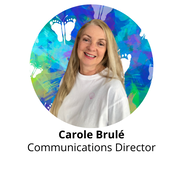


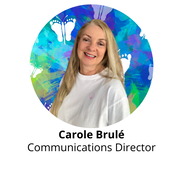

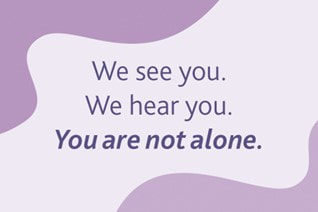
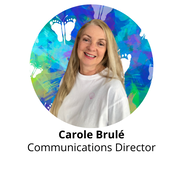
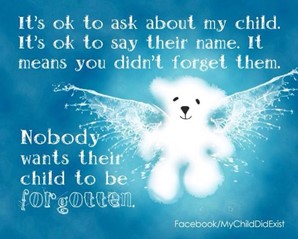
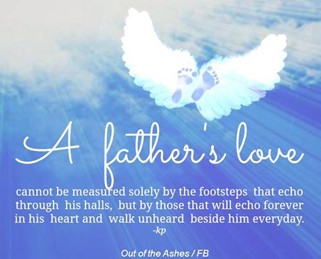

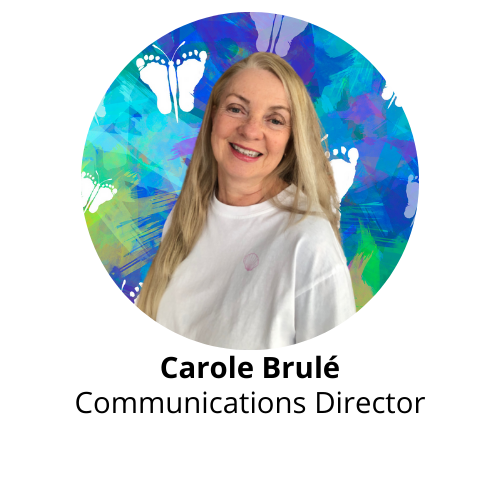

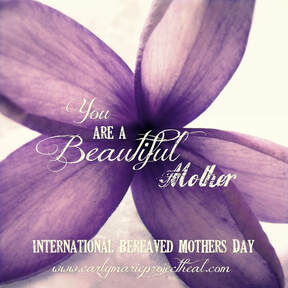
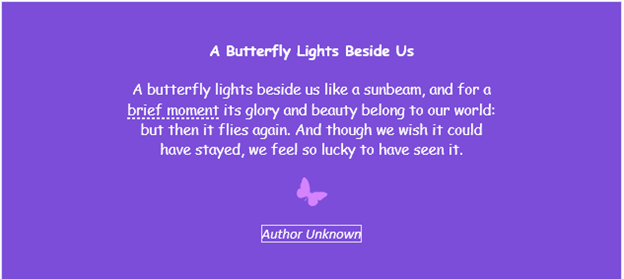




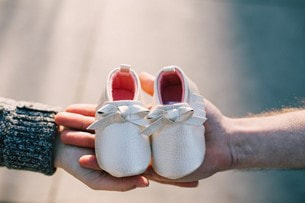

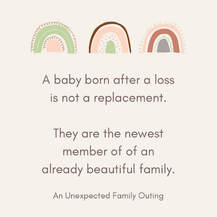
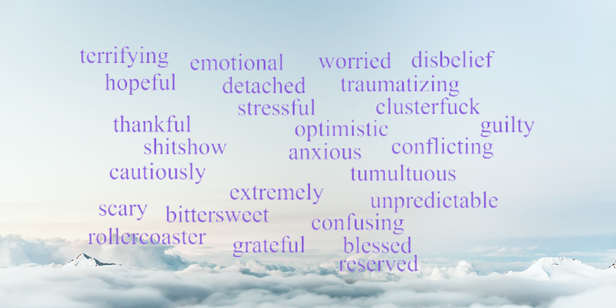

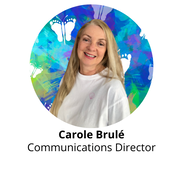

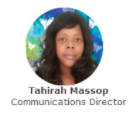
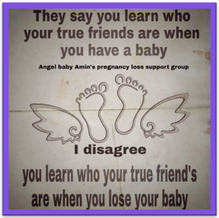


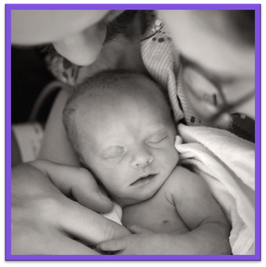

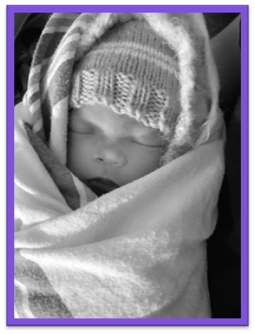
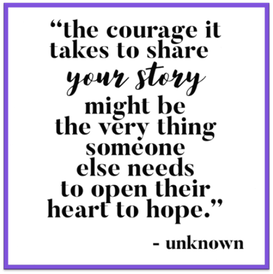
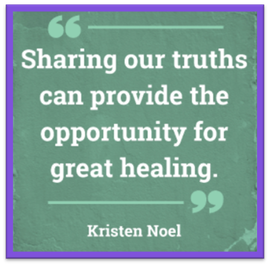

 RSS Feed
RSS Feed